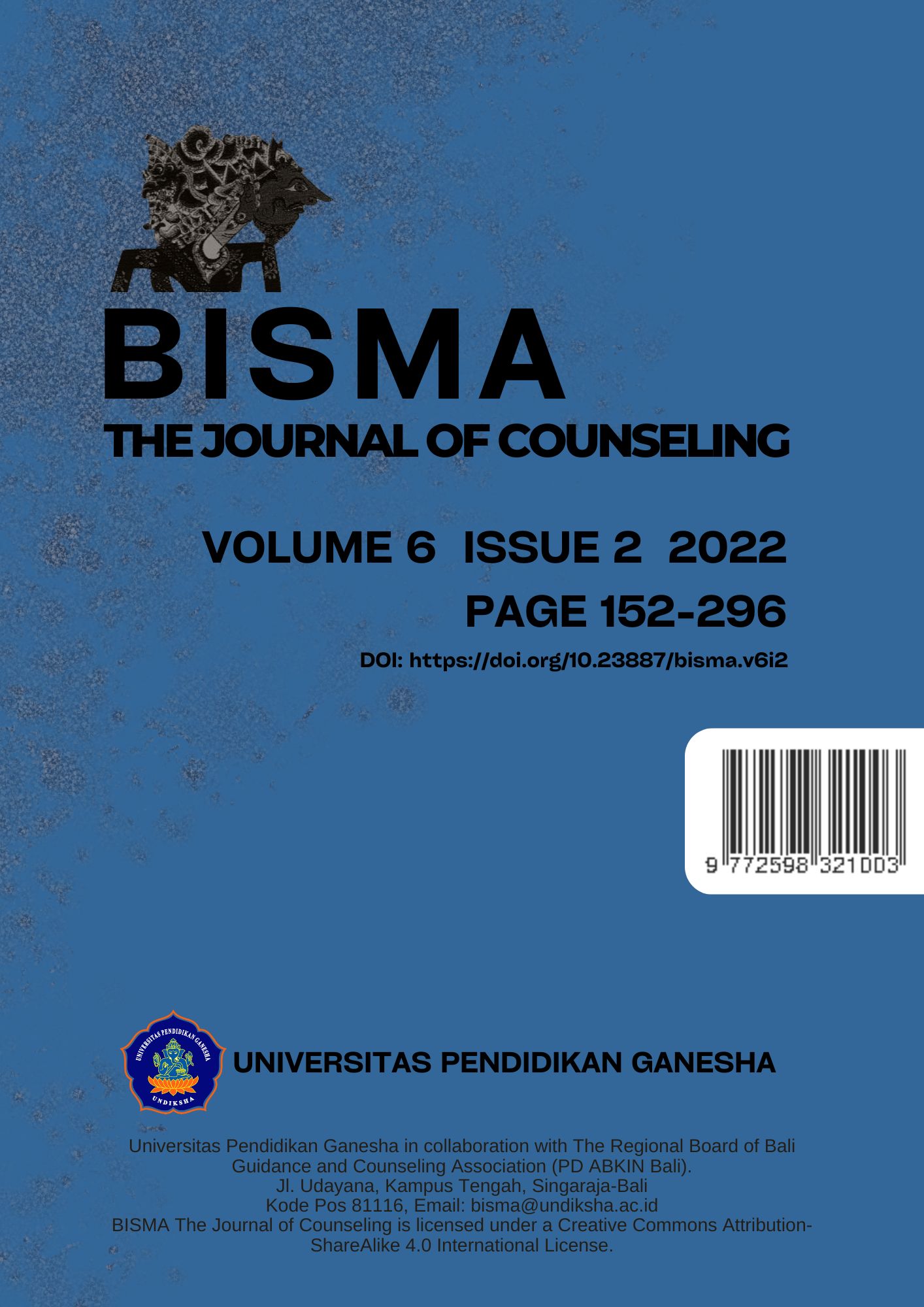Work Commitment and Organizational Culture
DOI:
https://doi.org/10.23887/bisma.v6i2.48102Keywords:
Work Commitment, Organizational Culture, EducationAbstract
Humans are resources that are assets in the organization. Humans have roles and functions that cannot be replaced by other resources even in technological improvements in science. Humans are an important factor in the development and progress of an organization. Because only humans have the ability to think critically (critical thinking), communicate (communication), collaborate (collaboration) and be creative (creativity). These human capabilities are needed by the organization in analyzing positions, analyzing organizational needs, managing existing resources (Man, Money and Material), making plans and other functions. In addition to this, organizations also need people who are dedicated, have good performance and are able to bind themselves to the vision and mission of the organization for the achievement of the goals of the organization. Therefore, in realizing a quality organization, people who are also qualified and have a high work commitment are needed. The purpose of this study was to find out how the competence and commitment to work in the organization at the Regional VIII Education Office Branch Office, Mentawai Islands Regency. This research is a qualitative research in the form of a case study. Data collection in this study was carried out using participatory observation techniques, interviews and documentation. The data is processed by using source triangulation technique. The findings of this study state 1) Low work commitment due to low competence. 2) Work commitment results in low performance. 3) Low work commitment causes the organizational culture to become less good.
References
Al-Jabari, B., & Ghazzawi, I. (2019). Organizational Commitment: A Review of the Conceptual and Empirical Literature and a Research Agenda. International Leadership Journal, 11(1).
Blaique, L., & Pinnington, A. H. (2022). Occupational commitment of women working in SET: The impact of coping self‐efficacy and mentoring. Human Resource Management Journal, 32(3), 555-583.
Calabrò, A., Vecchiarini, M., Gast, J., Campopiano, G., De Massis, A., & Kraus, S. (2019). Innovation in family firms: A systematic literature review and guidance for future research. International journal of management reviews, 21(3), 317-355.
Eddy Setyanto, H. (2021). The Study of Causality of Teacher’s Turnover Intention at Private Junior High School. Turkish Journal of Computer and Mathematics Education (TURCOMAT), 12(6), 1431-1444.
Gabriel, A. S., Podsakoff, N. P., Beal, D. J., Scott, B. A., Sonnentag, S., Trougakos, J. P., & Butts, M. M. (2019). Experience sampling methods: A discussion of critical trends and considerations for scholarly advancement. Organizational Research Methods, 22(4), 969-1006.
Hersey, K. & Blanchard, KH (2008). Management of organizational behavior: Leading human resources, 9th ed . Englewood Cliffs: Prentice
Mangkunegara, AA Prabu. 2005. Company Human Resources Management. Publisher : PT. Rosdakarya Youth, Bandung
Nawawi, Hadi. 2006. Performance Evaluation and Management in Corporate and Industrial Environments. Yogyakarta: Gadjah Mada University Press
Paais, M., & Pattiruhu, J. R. (2020). Effect of motivation, leadership, and organizational culture on satisfaction and employee performance. The Journal of Asian Finance, Economics and Business, 7(8), 577-588.
Rahardja, U., Moein, A., & Lutfiani, N. (2018). Leadership, competency, working motivation and performance of high private education lecturer with institution accreditation B: Area kopertis IV Banten province. Man India, 97(24), 179-192.
Rahmatullah, A., Ramdansyah, A. D., Kambara, R., & Haryadi, D. (2022). Improving Organizational Performance With Organizational Culture And Transformational Leadership Through Intervening Organizational Commitment Variables. Dinasti International Journal of Digital Business Management, 3(2), 180-194.
Sarhan, N., Harb, A., Shrafat, F., & Alhusban, M. (2020). The effect of organizational culture on the organizational commitment: Evidence from hotel industry. Management Science Letters, 10(1), 183-196.
Simanjuntak, M. B., & Lumingkewas, M. S. (2022). Applied Missiology Of Education For Sunday School Children. International Journal of Education and Literature, 1(2), 16-18.
Sunarsi, D. (2020). The analysis of the work environmental and organizational cultural impact on the performance and implication of the work satisfaction. Jurnal Ilmiah Ilmu Administrasi Publik, 9(2), 237-246.
Turner, B. A. (2019). The development of a safety culture. In Risk Management (pp. 397-399). Routledge.
Werdhiastutie, A., Suhariadi, F., & Partiwi, S. G. (2020). Achievement Motivation as Antecedents of Quality Improvement of Organizational Human Resources. Budapest International Research and Critics Institute-Journal (BIRCI-Journal) Volume, 3, 747-752.
Downloads
Published
Issue
Section
License
Copyright (c) 2022 Rafika Bestri, Ummi Kalsum , Nurhijrah Gistituati

This work is licensed under a Creative Commons Attribution 4.0 International License.









